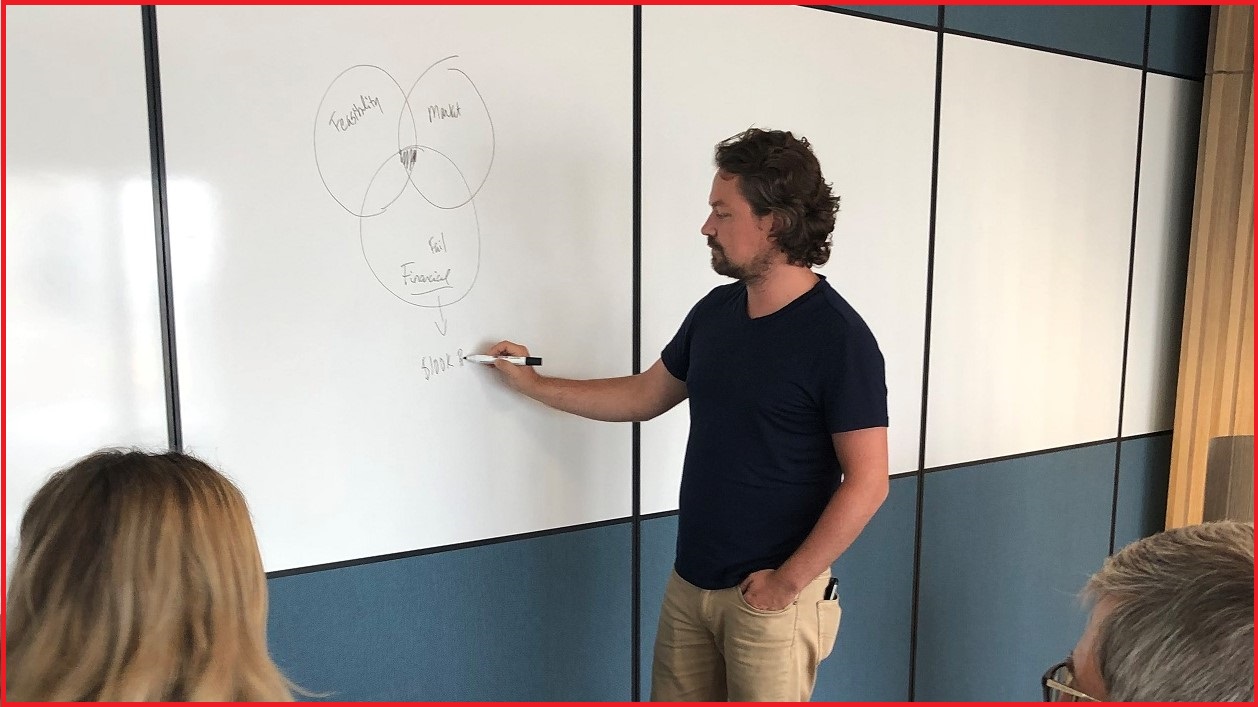Ask anyone to make a list of places they would like to work in Australia, and it’s fair to say Rockhampton wouldn’t top too many lists.
But for American entrepreneur Daniel Johnsen, 37, it was an opportunity to come and work with regional tech startups in a country he enjoys visiting.
Johnsen was the first North American recipient of the Australian government’s recently-launched Global Talent Independent (GTI) program visa.
The program headhunts “exceptional” global tech talent and lures them to Australia to train local communities.
Permanent residency is thrown into the deal.
Individuals don’t need to wait to be approached – they may also choose to apply for the visa independently, which is what Johnsen did.
“Getting the visa wasn't an easy process, to be honest,” Johnsen tells Information Age.
“I started looking at getting a visa in June 2019, but kept getting switched from migration person to migration person.
“I finally found a trusted migration agent who just happened to be a lawyer and we assembled a compelling set of reference letters, examples of work I'd done around the world, and media releases.
“We focused on other people saying how great I was, what my skillset was, and why Australia was going to benefit by having me here.”
Luck favours the prepared
Johnsen said having a “decision-ready” application for immigration to review helped enormously.
“We had the background checks from where I had previously been, all of my travel history – it’s surprisingly hard to document where you've been, why and when, all around the world!
The first part of the application was submitted on 25 October 2019, Johnsen said.
“Immigration then asked for a medical check, which the doctor submitted on 29 October.
“They then requested my complete travel history of all international travel for all of my life, which was time-consuming, and we submitted that part a few days later.
“The visa was granted on 1 November.”

Daniel Johnsen. Photo: Supplied
As an in-demand and time-poor asset, Johnsen felt it was a better use of his time to leave the visa application to a professional.
“I chose to use an immigration lawyer because it was important to me to get the outcome I wanted,” he says
“I'm sure I could have read a lot and used a lot of online resources but from a time and use perspective, it was better for me to use someone that knew the systems, what to include and what we would need to address to have a decision-ready packet for the immigration team.”
Working in Australia
Originally from Louisville, Kentucky, Johnsen had visited Australia previously and lived in Longreach, Queensland, for a year as the Entrepreneur in Residence with central western Queensland organisation Remote Area Planning and Development Board (RAPAD), again working with startups to grow and globalise their offerings.
Now in Rockhampton, he is based out of a local government council-sponsored co-working space called SmartHub, which is home to 70 innovators.
“It's actually pretty interesting because it's in the old customs house – it’s one of the first customs houses along the eastern seaboard from when Australia was colonised,” he reflects.
“Here we are, decades later, using that space for the digital economy and helping people do business across international borders.”
About the GTI program
Formally announced in November 2019, the GTI program offers a “streamlined, priority visa pathway for highly skilled and talented individuals to work and live permanently in Australia”.
The visa was introduced so businesses in Australia could have “access to the best and brightest talent to help grow a stronger economy,” according to the Australian government.
Eligible individuals in the specified high growth areas – which includes ICT – will be able to apply for Distinguished Talent (subclass 124 and 858) visas, and the points-tested stream of the Skilled Independent visa (subclass 189).
Persons working under the visa must be earning a minimum of $148,700.
There are 5,000 visas on offer.
The mad skills
Having worked extensively with startups in numerous countries, Johnsen’s skills include a strong understanding of startups, entrepreneurship and technology.
“I love helping people meet their goals. And it just turns out that people who are goal setters have an interesting way to be tolerant of risk and are willing to try new things and be adaptive.
“Australia is known for that around the world.
“Those are the people I choose to spend my time with.”
Johnsen believes Australia has the talent and the opportunities to be truly successful on the global stage.
“There’s a lot of opportunity in Australia,” he says.
“When we're talking about the digital economy – because of the isolation and the time zone difference compared to the rest of the world – Australia is not on the cutting edge.
“So, Australia is actually in an amazing position to leapfrog with technology innovation.”
Johnsen in now on a mission to recruit some of his peers to Australia, adding that it’s a pretty easy sell.
“My big thing is hammock camping,” he says.
“On a Saturday, it's not uncommon for me to go to the beach and set up my hammock and just chill out all day.
“Whenever people see pictures of that, they’re like, ‘Really? I'm in a landlocked state!’
“Well, congratulations, 94% of the Australian population lives within striking distance of the beach.
“Come on over.”










